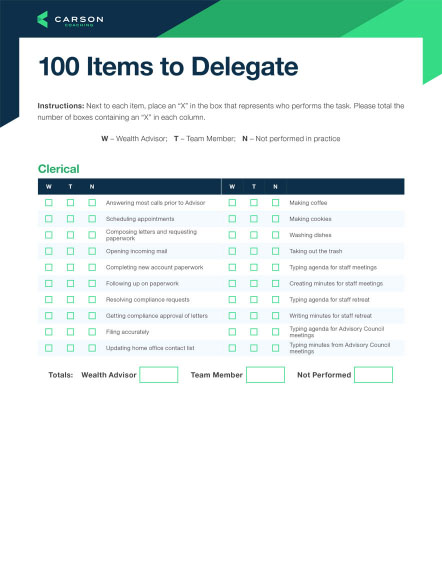You’ve been on “The Long And Winding Road.” Perhaps you’ve been working “Eight Days A Week” and really feel you’ve had to “Carry That Weight.”
Now, in the last chorus of your career, it may be time to consider what comes after. Perhaps you’ll become a “Paperback Writer,” go on “A Magical Mystery Tour”, or simply enjoy “Golden Slumbers.”
With apologies to Sir Paul and the lads from Liverpool, I’d like to share some ideas on how to transition on your own terms.
Whatever your future plans are – and whether they fit into a Beatles song – you want your exit to be smooth rather than rocky. Set yourself up for success by becoming fully aware of your true aspirations and all the options available to you.
I’ve divided these ideas into three buckets:
- Planning and preparation
- Considerations for an anticipated internal sale
- Factors that chiefly impact an external sale.
Let’s dive into each bucket to learn what you can expect and how you can develop an exit plan that ideally meets your personal and professional objectives.
Planning and Preparation
Valuation
I believe that the first step in exit planning is a formal firm valuation. I don’t mean a back-of-the-napkin, two-times-revenue guesstimate, but a formal assessment by a recognized expert such as a valuation consultant or M&A specialist who is experienced in our industry.
You want to know your baseline. You want to know what potential buyers are likely to pay for your business. This may be very different from what you believe your business is worth.
The valuation exercise also provides the great gift of highlighting those value drivers at which your business excels and those where you are challenged. The first group enhances value, the second exerts a downward pressure on a potential purchase price. Armed with this knowledge you can redirect energy and resources to the areas that will elevate firm value in advance of the sale.
You want to know if there is a gap between a best-in-class business valuation and the amount at which your firm is assessed. Then you can take corrective measures to close the gap if needed.
Sellers have different motivations and expectations. While valuation is important, it isn’t the only factor sellers consider. If you are confident you’ll sell to a colleague or family member, you may be less focused on selling price and more concerned with legacy and helping the G2 owners succeed.
Timing and What Comes Next
Some advisors reach a point where they want to flip the switch and move on to the next chapter. However, in my coaching experience, most advisors want to take their foot off the gas slowly, controlling the timing and pace of their withdrawal.
This “advisor emeritus” role is compelling for many. You continue to work with a handful of your favorite clients but delegate operational and other firm responsibilities to your team. You get to focus on just the fun stuff!
I used to be an advisor in Sarasota – or as I refer to it, Retirement-ville. I worked with many clients who had retired and moved to the land of sun and fun. But after a couple years of lounging, boating, visiting the grandkids, and playing rounds upon rounds of golf, some would start climbing the walls. They searched for something that would give meaning and purpose to the retirement years they had worked so hard to fund.
As you plan and prepare for retirement or semi-retirement, be deliberate about what comes after your full-time advisor role. How will you fill the hours? Here are a few ideas that allow you to leverage your experience, give back to the community, and address those parts of yourself that may have lain dormant:
- Teach a course on financial planning at the local community college
- Help other business owners find success through programs like the Service Corp of Retired Executives
- Master that long-thwarted passion like piano or photography
- Become involved in philanthropy
- Start another casual business
Mastering your plan for life’s third act is critical to transition success. If you’re unsure about what your retirement will look like, you might struggle to crystalize your exit strategy or you might even sabotage established plans.
Considerations for Internal Buyers
If you anticipate staying involved with clients but reducing your overall role in the business, your options regarding internal or external buyers may be affected. Selling to a colleague or family member offers much more flexibility in terms of your continued presence in the firm. While you may find external buyers who will accommodate the timeline of your post-transition participation, you can more easily sculpt a flexible, self-directed plan for easing off the throttle with internal buyers.
We understand the draw of passing the torch to an internal buyer, particularly if it’s a family member. However, you don’t want to watch as the business you spent decades building slowly withers away. Nor do you want your clients and their families to be left in the lurch as the new owner struggles to service clients appropriately. As you cast about for the next “you,” be realistic about whether your replacement’s ability and skills align with the demands of the job.
G2 Leadership: Grow it or buy it
Does your firm have a next-gen owner with the desire, drive, and required skills to successfully lead your team into the future? While they might not be ready to immediately take over all your responsibilities, you can start training them now and slowly hand off responsibilities.
Here are the requisite skills for a next-gen owner:
- Ability to acquire new top-tier clients
- Technical expertise and experience to deliver financial planning and investment management services to top-tier clients (note that separating the advisor role and the planner role is becoming increasingly popular)
- Confidence, poise and relationship management skills to retain clients, deepen relationships and attract new clients
- Business management proficiency or willingness to delegate to a director of operations or similar role
- Team leadership skill or willingness to delegate to a director of operations or similar role
- Work ethic required to run a business
Again, future leaders might not be proficient in all the required skills right away. Once you identify a candidate, develop a training plan and deadline to determine if this candidate can ultimately take over.
If it’s clear that there are no candidates on your team, you’ll want to hire someone who is qualified, or at least someone you feel very confident has the raw talent to develop.
A training plan will seek to close the gap between where the advisor is now and where they need to be. The plan should be very detailed and include specific modules or areas of instruction (e.g., who or what resource will transfer knowledge for each module, a timeline, success measurements that define how all interested parties will know this topic has been mastered, etc.)
Establish a hard deadline for when you will make a final determination on the next-gen advisor’s ability to take over. Give yourself plenty of runway. If you ultimately decide that your candidate is unable to assume the leadership role and purchase the business, you need time to find a replacement and get the new candidate up and running.
Remember, you can’t step away until you replace yourself with someone you trust. If you are within five years of your target transition date, finding the next owner/senior advisor should be a top priority.
Financing and Terms
It’s common for deal structure in our industry to include a combination of seller financing, earn out, and cash from the buyer. Here are important questions you’ll want to consider as you envision your ideal exit:
- How driven are you to get fair market value for your business?
- Will you finance the entire transaction yourself or rely on a mix of the techniques listed above?
- If you are not financing the entire deal, does the internal buyer have the ability to arrange partial funding?
If none of the above items are true, consider partnering with an organization that can take a minority position in the firm and ease the financial and management burden on the new owner.
As with valuation, deal structures can be complicated. It’s an issue that deserves the attention of a specialist and should be a consultative process. As you move to solidify your transition plans, engage with an M&A specialist who can provide context on industry best practices and how you can best meet your needs and desires.
Considerations for External Buyers
Just as you would hate to see your clients and colleagues suffer through a transition to an ineffective internal leader, so too would you want to avoid an outside buyer who does not align with your approach in caring for clients and team members.
It’s probably true that there are as many points of view regarding the right way to sell to an external buyer as there are sellers, but below are key factors to consider when evaluating potential suitors. You want to focus on finding the right fit.
- Prioritizing the client experience: Will they meet with clients according to a reasonable schedule or ignore all but top revenue generators?
- Comprehensive financial planning: Will they plan for every possible contingency? Do they wrap their arms around the entirety of the clients’ financial complexity?
- Managing assets: Are they advisory-focused or transactional? Will they make investment recommendations that hold the clients’ best interest uppermost?
- Valuing the team: Will they treat the staff with respect and provide a career path and advancement opportunities for those who are interested?
- Geography: Are the bulk of your clients within an hour’s drive of the buyer? In this new Zoom-friendly world, does this still matter to you?
- Is the buyer a similar type of organization, i.e., large/small, RIA, broker-dealer, bank, etc.? Is this important to you? If so, will they allow you to maintain client relationships while decreasing your role at the time and pace of your choosing?
- Deal structure: Do they agree to your terms or offer an agreeable alternative?
There are a lot of variables to consider when developing your ideal exit plan. If we “Get Back” to my Beatles references, exit planning requires thoughtful planning and execution, and a realistic exploration of your genuine motivations and desires for the next phase of life.
“We Can Work It Out” – together. Schedule a complimentary consultation with a Carson Coach to help to you determine an effective course of action and provide you the resources and support you need.


